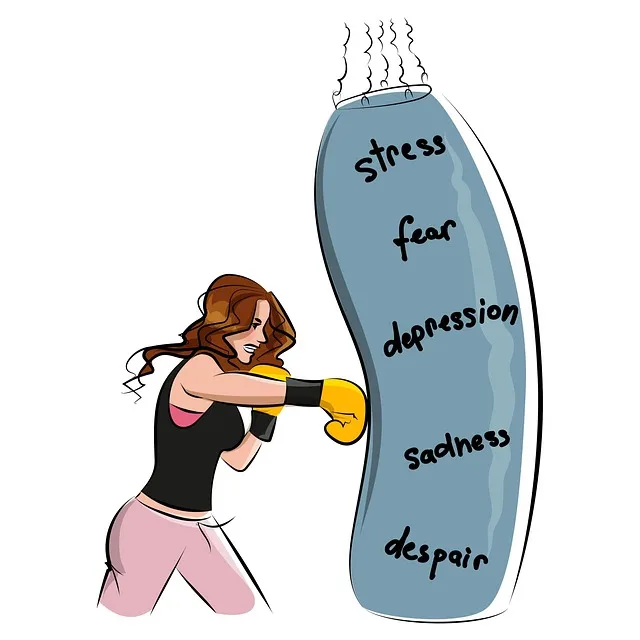Kaiser offers mental health services in Lone Tree with a focus on Resilience-Focused Management (RFM), integrating exercises for emotional regulation and stress reduction. Their programs, including podcasts and journaling, build resilience to navigate life challenges. Success is measured through tailored metrics evaluating engagement, satisfaction, and well-being improvements.
“Discover how Kaiser’s Mental Health Services in Lone Tree are revolutionizing resilience building. This article explores the powerful concept of RFM (Resilience, Flexibility, and Mastery) and its impact on fostering mental fortitude. We delve into the implementation of RFM exercises within Kaiser’s programs, highlighting their unique approach to enhancing well-being. Learn about the benefits for individuals seeking robust mental health support in Lone Tree. Additionally, we’ll guide you through measuring the success of such initiatives.”
- Understanding RFM and its Impact on Resilience
- Kaiser's Mental Health Services in Lone Tree
- Integrating Resilience Building Exercises
- Measuring Success: Evaluating RFM Implementation
Understanding RFM and its Impact on Resilience

Resilience is a crucial aspect of mental wellness, enabling individuals to navigate life’s challenges and adversity with strength and adaptability. RFM (Recovery-Focused Management), a proven approach, emphasizes empowering people to recover from trauma, stress, or difficult experiences. By focusing on resilience, RFM offers a transformative framework that can significantly impact one’s overall well-being.
In today’s fast-paced world, where mental health concerns are increasingly common, understanding the power of RFM is vital. Organizations like Kaiser, known for their comprehensive healthcare services, offer mental health support in Lone Tree and beyond, incorporating resilience-building exercises into various programs. These exercises cater to different needs, from the Mental Wellness Podcast Series Production that provides accessible guidance to emotional regulation techniques, to mental wellness journaling as a therapeutic tool. Such initiatives recognize the importance of fostering resilience as a foundation for mental wellness.
Kaiser's Mental Health Services in Lone Tree

Kaiser’s Mental Health Services in Lone Tree offer a comprehensive array of support for individuals seeking to enhance their emotional well-being and build resilience. The center recognizes that stress reduction methods are integral to fostering emotional regulation, particularly in today’s fast-paced world. Therefore, they provide various programs designed to equip clients with tools to navigate life’s challenges effectively.
These services cater to diverse needs, focusing on evidence-based practices for resilience building. Through individual therapy sessions and group support meetings, Kaiser helps individuals develop coping strategies tailored to their unique experiences. By integrating Stress Reduction Methods and Emotional Regulation techniques, the center enables its clients to strengthen their mental fortitude and lead more fulfilling lives in the heart of Lone Tree.
Integrating Resilience Building Exercises

Many organizations, including Kaiser, recognize the growing importance of mental health services and have started integrating resilience-building exercises into their programs, especially in areas like Lone Tree. These exercises are designed to help individuals cultivate coping strategies and enhance their overall mental wellness. By incorporating activities that promote stress reduction, emotional regulation, and problem-solving skills, organizations aim to create a supportive environment fostering resilience among employees or community members.
The Mental Wellness Podcast Series Production often features experts in the field who discuss various techniques for building resilience. From mindfulness practices to crisis intervention guidance, these resources provide valuable insights into managing challenges effectively. Such initiatives ensure that individuals have access to tools and support needed to navigate life’s stressors and build a stronger foundation for mental wellness.
Measuring Success: Evaluating RFM Implementation

Measuring success when implementing RFM (Resilience, Flexibility, and Mindfulness) exercises is paramount to ensure the effectiveness of these initiatives. At Kaiser, a leading healthcare provider in Lone Tree, mental health services have incorporated these practices with the aim of enhancing emotional well-being. The success of RFM can be evaluated through various metrics tailored to each organization’s goals. For instance, tracking participant engagement and satisfaction levels post-exercises offers valuable insights into their perceived benefits.
Regularly scheduled Mental Wellness Journaling Exercises, for example, can provide a platform for individuals to reflect on their emotional states and progress over time. Crisis Intervention Guidance sessions can also be assessed through feedback forms, helping to gauge the timeliness and effectiveness of support received. By combining quantitative data like attendance rates with qualitative feedback from participants, organizations like Kaiser can fine-tune their RFM programs, ensuring they promote emotional well-being in a meaningful and impactful manner.
Resilience is a pivotal component of mental well-being, and organizations like Kaiser in Lone Tree are leading the way in prioritizing it. By integrating Resilience, Flexibility, and Mental Health (RFM) exercises into their services, they empower individuals to navigate life’s challenges effectively. This approach, as evidenced by Kaiser’s initiatives, demonstrates that fostering resilience can significantly improve overall mental health outcomes. When implemented correctly, RFM strategies can help individuals build a strong foundation for well-being, ensuring they are equipped to handle stress and adversity in today’s fast-paced world. Thus, the implementation of such exercises is a promising step towards enhancing mental health support in Lone Tree and beyond.






